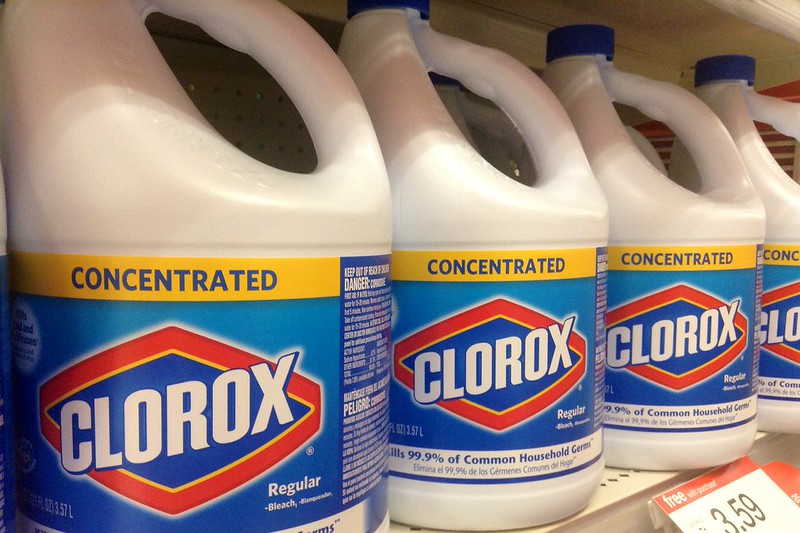
By Mike Mozart, CC BY 2.0

Audio By Carbonatix
A few seconds of video were enough to ignite outrage across Denver’s food scene: a public health inspector pouring bleach over tubs of limes, pickled onions, guacamole and other food at a popular street taco stand. The stand – Taco Tacolorado – was operating near South Colorado Boulevard and East Evans Avenue on Saturday, November 15, when investigators from the Denver Department of Public Health & Environment arrived. By Monday, the clip was taking off on Instagram, with commenters accusing the city of destroying food and targeting a beloved street taco vendor.
DDPHE is pushing back on that narrative. According to the department, the video captures only a few moments of a months-long effort to bring Taco Tacolorado into compliance with basic food safety rules. Emily Williams, the department’s spokesperson, and Danica Lee, director of Public Health Investigations, say the stand had been operating without a license despite repeated attempts by multiple jurisdictions – the stand has operated from Colorado Springs to Arvada and Lakewood – to educate the operator and provide a path to legal operation.
Taco Tacolorado did not respond to messages asking for comment.
Lee says the vendor had been contacted “several times” by Denver investigators before the incident in the video. During those visits, she says, inspectors attempted to explain what the stand needed to operate safely: a hand-washing sink with hot and cold water, proper sanitizer, equipment capable of keeping meats at safe temperatures, and a licensed commercial kitchen for food preparation. Instead, inspectors found employees dipping their hands in a “garbage bucket of water,” a lack of sanitizing solution, and meats sitting at temperatures at which bacteria thrive. Investigators also determined that food was being prepared in a home kitchen – something allowed only for low-risk “cottage foods,” not for items like marinated meats and fresh salsas.
“Foods were not at the right temperature,” Lee says. “There was no sanitizing solution available… the equipment was not effective for keeping foods at the right temperature.” All three inspection reports, she adds, were written in Spanish and a Spanish-speaking DDPHE staff member handled each interaction.
The stand moved frequently, Lee says, sometimes switching cities as different agencies attempted enforcement. Denver received information that Taco Tacolorado would be operating at the Evans and Colorado location on Saturday, and investigators went to follow up.
The bleach – at the heart of the viral video – is not, according to DDPHE, a punishment, but one of several tools inspectors use when food must be rendered inedible immediately. Typically, unsafe food is discarded into a dumpster or trash container after inspectors document violations. For the first two inspections, Williams says, Taco Tacolorado’s staff voluntarily threw the food out. One of those times, a dumpster was available on-site.
Saturday played out differently. According to DDPHE, when investigators arrived, employees began quickly packing the food into their truck. They then told investigators that they no longer had the key to open it. With the food sealed away, no dumpster available and the operator attempting to prevent disposal, inspectors used bleach to ensure the food could not be served.
“It was something that needed to happen in the immediate time,” Williams says. After the bleach was applied, she adds, the food was bagged and removed, which is not shown on the video.
The online reaction, however, was swift and harsh. Much of it accused the city of cruelty, waste or unfairly targeting a Spanish-speaking business. Some commenters specifically attacked the Spanish-speaking inspector in the video, which Williams says has been “pretty vile.”
Lee says the department understands why the visual struck a nerve, but emphasizes that food-safety enforcement is about preventing illness, not punishing vendors. She notes that DDPHE handles inspections across fields ranging from restaurants to child-care facilities and housing. “Consumers deserve to know that the food they’re purchasing is safe,” she says.
Despite the repeated visits, Lee says the department has been unable to reach the stand’s owner directly. The on-site employees have been different at each inspection, and when the owner has been contacted by phone during an inspection, investigators say they have been unable to reach him afterward. DDPHE has issued several fines to a mailing address provided by another health department, though officials don’t know whether the owner is receiving them. The department says it will continue to attempt contact and will enforce the law if the business continues to operate without a license.
Lee stresses that the goal is compliance, not shutting vendors down. The department offers free food-safety classes in English and Spanish and says it routinely helps mobile and informal food businesses obtain licenses. “We try to get people educated and licensed – that’s the best outcome for us,” she says, adding that DDPHE has attempted multiple times to walk Taco Tacolorado’s operator through that process.
The case has also drawn complaints from licensed food businesses, Lee adds, who argue that allowing an unlicensed operator to continue without meeting the same requirements creates an uneven playing field.
The department says enforcement will continue. Tacolorado, meanwhile, remains as popular as ever online – with many users calling for the city to show leniency.
The question now is whether the vendor will engage with the licensing process, or whether city inspectors will be on the lookout for Taco Tacolorado again.